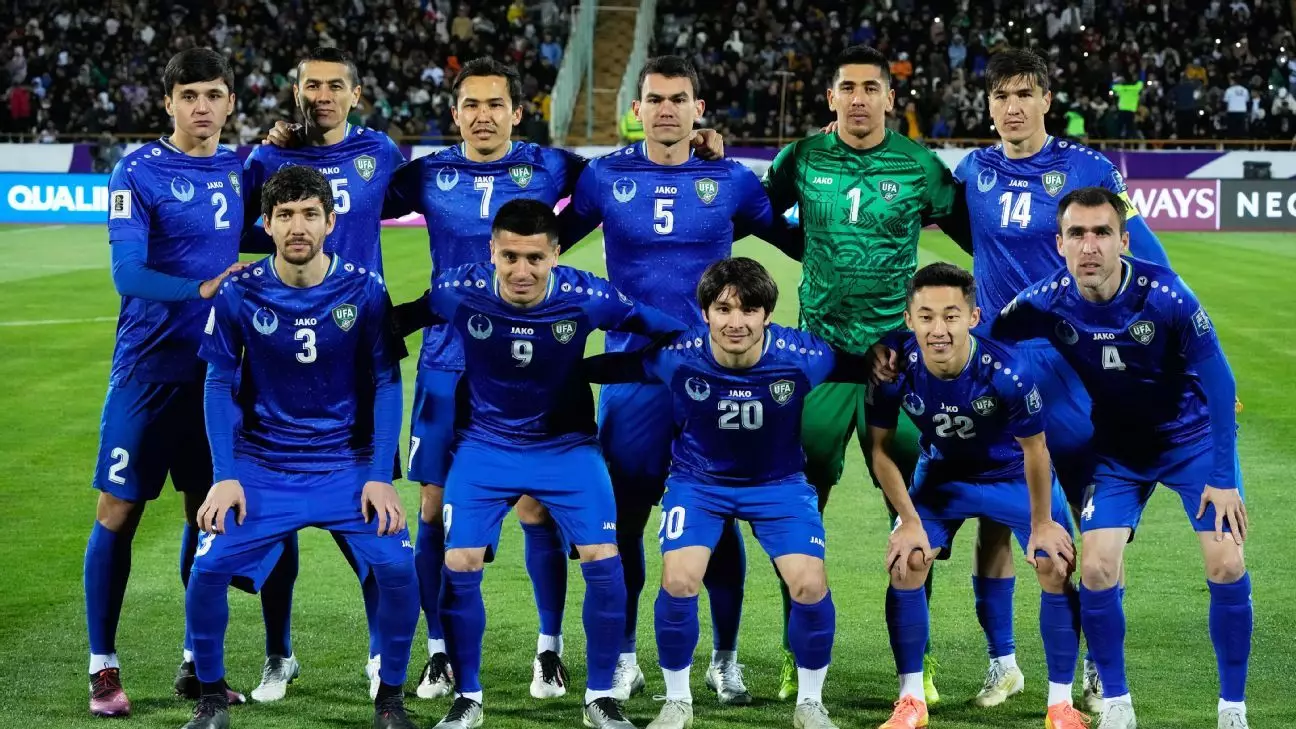Uzbekistan’s qualification for the men’s World Cup finals is nothing short of a monumental achievement for this Central Asian nation. After eight attempts, this moment crystallizes their relentless pursuit of footballing respect on the global stage. With a tension-filled 0-0 draw against the United Arab Emirates in Abu Dhabi, Uzbekistan has carved its name into World Cup history. This draw exemplifies the grit and determination of a side that has faced numerous trials since gaining independence from the Soviet Union in 1991.
The match was a test not only of skill but of mental fortitude. Goalkeeper Utkir Yusupov showcased exemplary performance, especially in the second half, where his ability to thwart UAE’s advances solidified his position as a national hero. Rather than relying purely on offense, Uzbekistan’s defensive strategy under pressure proved effective. This game will remain etched in the memories of their supporters, who have long endured the disappointment of near-misses in prior qualification campaigns.
The Region’s Evolving Dynamics
Uzbekistan joins an elite group of nations—Japan, New Zealand, Iran, and Argentina—who have successfully secured spots in the upcoming 2026 World Cup. The journey to reach this point is remarkable, and it highlights a shift in the footballing landscape in Asia. Traditional powerhouses now face fierce competition as nations like Uzbekistan rise through the ranks, showcasing their potential on larger platforms. This qualification is not just a singular achievement; it symbolizes hope for the future of football in Central Asia.
Meanwhile, in a broader context, Australia’s path to qualification seems straightforward due to their substantial goal difference, despite the potential setback against Saudi Arabia. This demonstrates the consolidating nature of football in the Asian Football Confederation, where even teams facing adversity remain in contention for World Cup spots. The competition has intensified, ensuring that every match counts.
Jordan’s Flourishing Prospects and Broader Implications
Not to be overshadowed, Jordan is also on the verge of solidifying its World Cup aspirations, propelled by a stunning hat trick from Ali Olwan that helped secure a 3-0 victory over Oman. The excitement surrounding Jordan is palpable; their willingness to challenge the status quo emphasizes a broader, emergent narrative in Asian football. It’s indicative that nations often considered underdogs are beginning to assert themselves, threatening the established powers in football.
The implications of these developments are significant. Countries previously relegated to the background are stepping into the spotlight, effectively changing the dynamics of the sport in Asia. The World Cup is no longer merely the playground of historic footballing nations. Every match in the qualification rounds is infused with both unpredictability and promise, enthralling fans and analysts alike.
Indonesia’s Resilience and Future Aspirations
Indonesia’s narrow win over China, securing their path into the next qualifiers, highlights the growing competitiveness in Asian football. The narrative of underdog success continues, with the specter of potential rising through the ranks. The varying success stories, from Uzbekistan to Indonesia, suggest that grassroots investments in player development and infrastructure will be pivotal for sustaining this upward trajectory.
As these nations capitalize on their achievements, the excitement surrounding Asian football grows. Countries may soon foster not just competitive teams but also vibrant football cultures that resonate beyond their borders. The forthcoming World Cup promises to be more than just a tournament; it heralds a new era for Asian football on the global stage.

